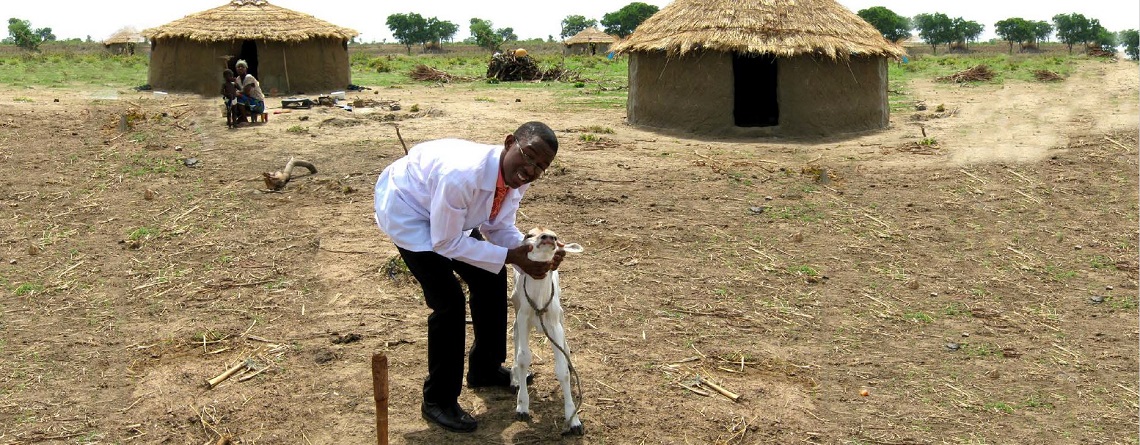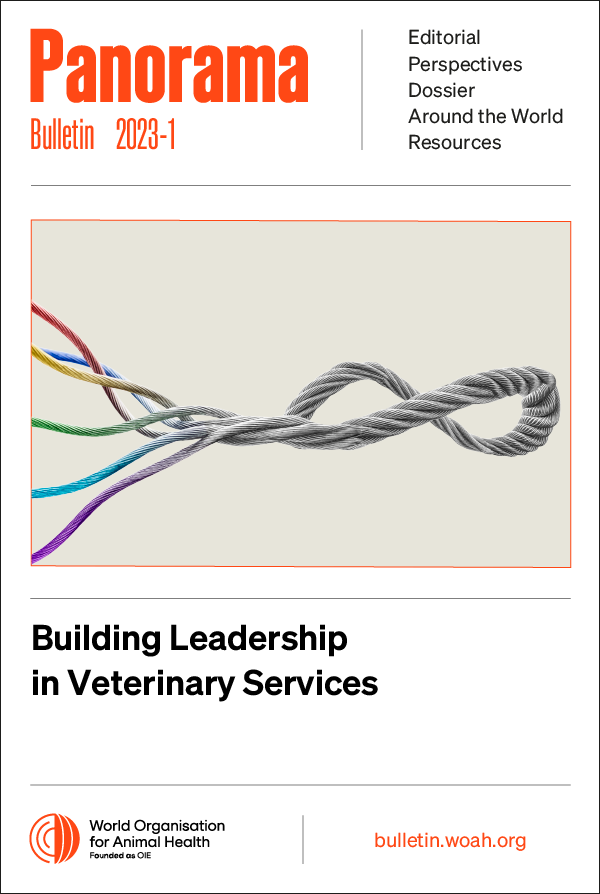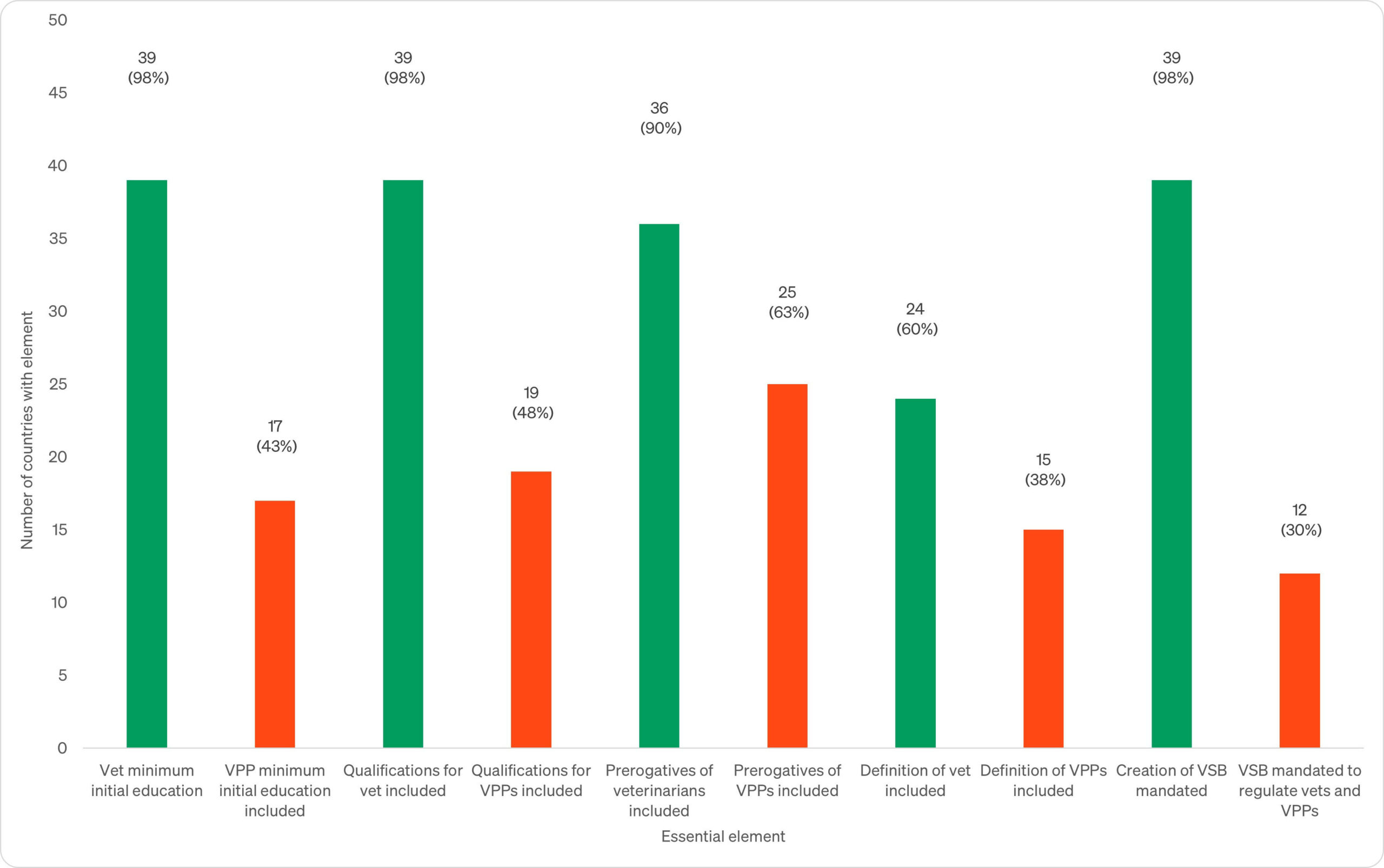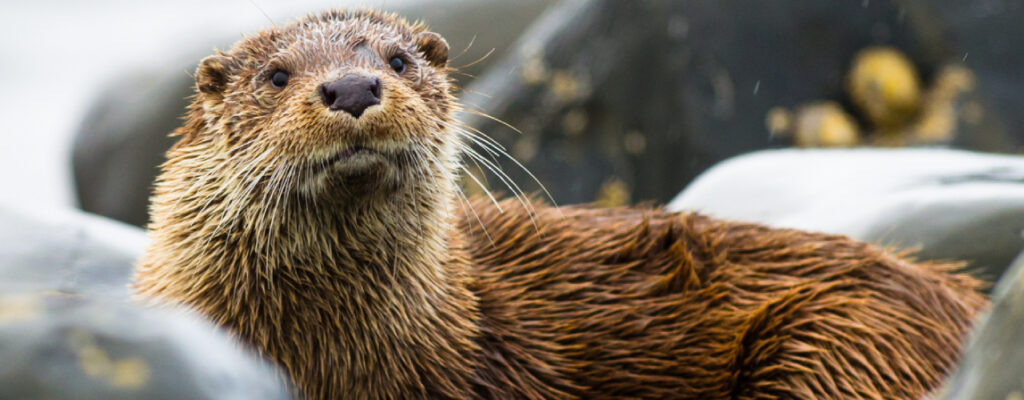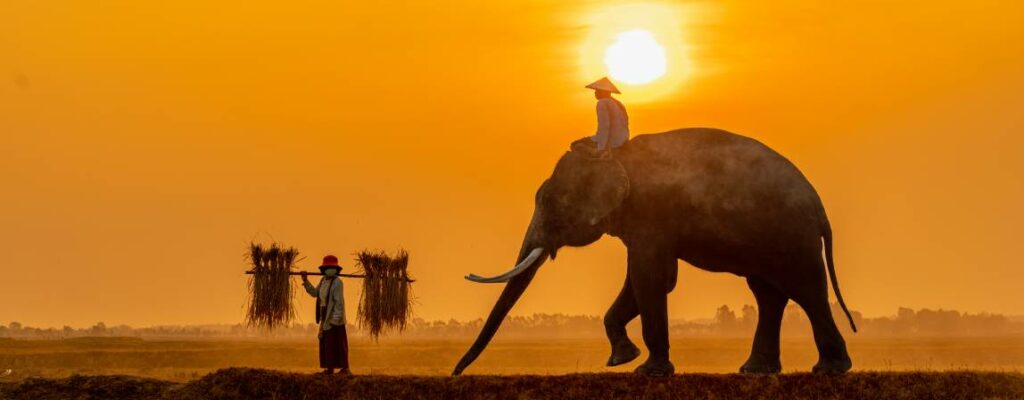Around the world Posted on 2023-02-27 15:08:20
WOAH actions
Regulation of the veterinary professions in Africa
A legislation review
Keywords
Authors
Kelsey Galantich (1)* & David Sherman (1)
(1) Capacity Building Department, World Organisation for Animal Health (WOAH).
* Corresponding author: K. Galantich.
The World Organisation for Animal Health (WOAH, founded as OIE) recognises that its Members utilise veterinarians and VPPs to staff their national Veterinary Services (VS). While there is considerable variation in workforce composition between countries and regions, WOAH expects that countries regulate the training, qualification, prerogatives, and professional conduct of staff in all categories of the veterinary workforce. This requires the establishment of a legal framework for veterinary practice, such as a Veterinary Practice Act, which addresses the requirements for registration of both veterinarians and VPPs.
Throughout the Africa region, there is a high proportion of VPPs in the workforce relative to graduate veterinarians. As part of its programme on veterinary workforce development, WOAH reviewed veterinary legislation in this region to determine the extent to which the recommended legal framework for regulating veterinarians and VPPs is in place. Fifty of 54 WOAH Members in the Africa region agreed to share their legislation around veterinary practice, which was reviewed against a set of essential elements from the Terrestrial Animal Health Code deemed necessary for proper regulation of the veterinary professions.
This study found that, generally, African countries recognise the importance of regulating veterinarians, as 40 out of the 50 responding countries have legislation regulating the veterinary professions (Figure 1). Further, 98% of responding countries with legislation include a legal basis for the creation of a Veterinary Statutory Body (VSB) to regulate the veterinary professions, with 92% of these countries establishing a VSB in practice. However, the results also show that VPPs are underregulated in Africa compared to veterinarians (Figure 2). Notably, of the 39 countries with a legal basis to create a VSB, only 12 countries (30%) included a legal basis for their VSB to regulate VPPs in addition to veterinarians.
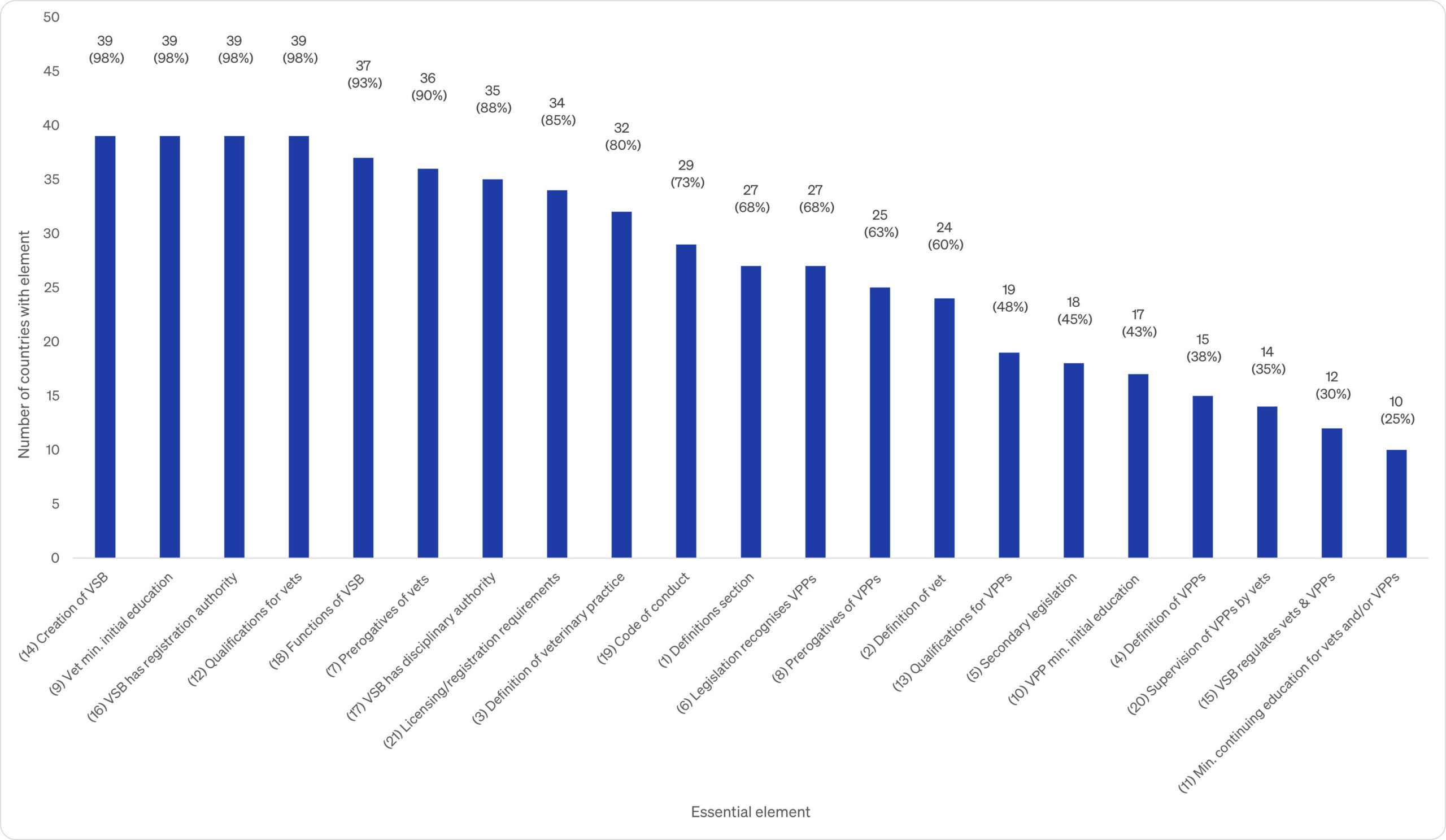 |
Thus, the regulation of VPPs requires greater attention in veterinary legislation in Africa, particularly since VPPs comprise a significant proportion of the regional veterinary workforce. A strong legal basis for the training, qualifications, prerogatives, regulation and professional conduct of VPPs will encourage greater recognition of the value these workers provide to the national VS and enhance the quality of their performance. Through its Veterinary Legislation Support Programme (VLSP) in the PVS Pathway, WOAH is poised to assist members with identifying gaps in their legislation and drafting new legislation to address them.
| Joint statement (27 May 2022) from Dr Kobedi Segale, Botswana Veterinary Surgeon’s Council registrar, and Dr Kefentse Motshegwa, Botswana Department of Veterinary Services Deputy Director and Designated Project Officer responsible for the implementation of the WOAH Veterinary Legislation Agreement (incl. Review Team Leader), which took place between 26 August 2019 and 25 May 2021
Botswana Veterinary Surgeon’s Act
Veterinary Legislation Support Programme
|
https://doi.org/10.20506/bull.2023.1.3386




